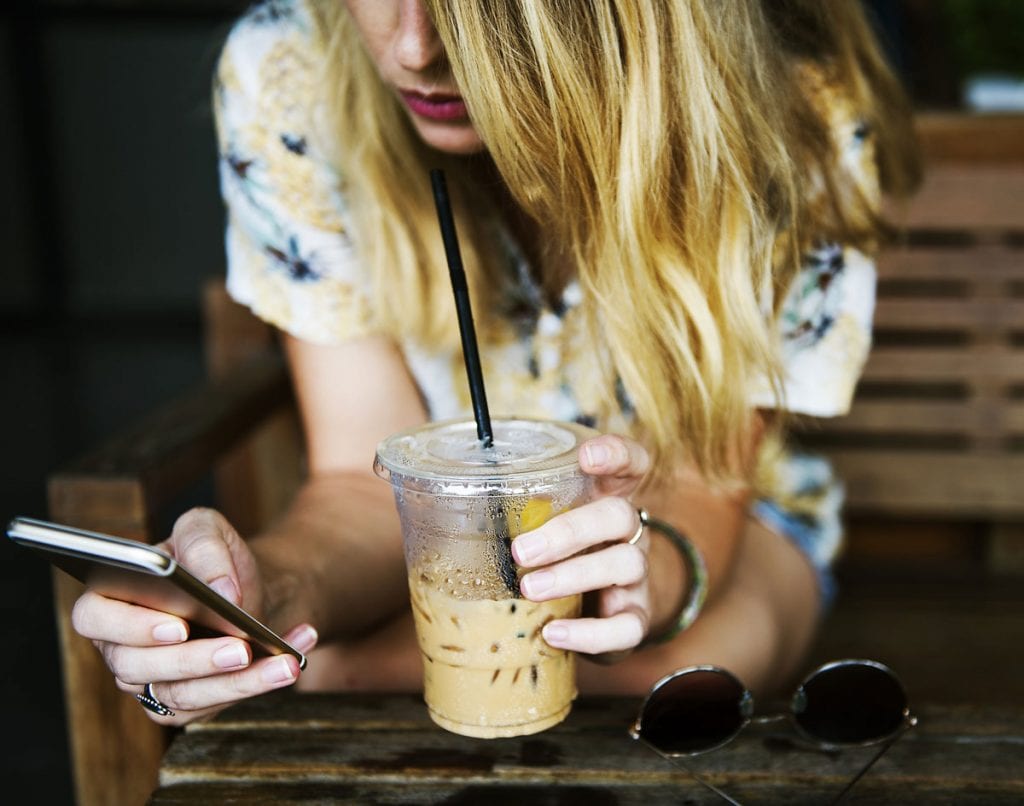Overuse of smartphones by university students may be linked to unproductive behaviour such as lower grades, drinking problems and more sexual partners, according to a new study.
In a survey of more than 3,400 people seeking university degrees in the U.S., those who said they had problems with the amount of time they spent on their phones also reported having more sexual partners. They were also more likely to report anxiety of depression.
One psychiatrist said the findings were “concerning.”
Researchers from the University of Chicago, University of Cambridge, and the University of Minnesota developed the Health and Addictive Behaviours Survey.
Its aim was to assess mental health and wellbeing among university students and to see what impact mobile phones had on them.
To establish whether mobile phone use was excessive, students were asked a variety of questions, including:
- do friends or relatives complain about excessive use?
- do you have problems concentrating in class or at work due to smartphone use?
- do you feel fretful or impatient without your smartphone?
- do you feel the amount of time you are on it has increased over time?
- are you missing work due to smartphone use?
- are you experiencing physical consequences of excessive use, such as light-headedness or blurred vision?
One in five students answered yes to enough questions to be deemed as overusing their phones, with more than 60 percent of these being female.
Neglecting normal relationships
The study found that the proportion of students reporting two or more sexual partners in the past 12 months was significantly higher among those also reporting overuse of mobile phones—37 percent compared with 27 percent who reported no problem use. The proportion with six or more sexual partners was more than double among those who said they overused their smartphones.
The reasons for this are difficult to pinpoint and are likely to be varied, said Dr. Sam Chamberlain, one of the authors of the study.
“It could be that people are using smartphones to date via apps, but they also might be neglecting more normal relationships because of overuse of their phones,” Chamberlain said. “The strongest finding was that people reporting problematic use of their phones were also more likely to have the trait of impulsiveness, and this could also play a part in the number of sexual partners they have.
“If this was a healthy thing we’d expect to see better self-esteem and less mental health issues but the opposite was the case,” Chamberlain added.
The researchers also found that excessive drinking was higher in those reporting problematic smartphone use, compared with those who felt their mobile use was normal. Notably, they found no significant link with any other form of substance abuse or addiction.
Smartphone studies
Previous studies have pointed to a link between excessive use of smartphones and lower academic achievement, and this report also found a connection.
“Although the effect of problematic smartphone use on grade point averages was relatively small, it’s worth noting that even a small negative impact could have a profound effect on an individual’s academic achievement and then on their employment opportunities in later life,” said University of Chicago’s Prof Jon Grant.
While there are an increasing number of studies into mobile phone use and its consequences, none have definitively proved that excessive use causes mental health issues—and there needs to be more funding for deeper research, thinks Chamberlain.
“We need studies that follow young people over a long period of time,” he said.
Dr. Abigael San, a member of the British Psychological Society, said of the study: “It is concerning and I’m glad the work is being done. All of these effects are very real and are problems discussed in therapy sessions. Often people don’t come with a smartphone issue—instead it is a mental health issue or a relationship break-up—but more than often smartphone usage plays a part.”
See also: Dogs Reduce Student Stress, Study Finds
Period Pain Linked to Nine Days of Lost Productivity for Women in a Year


